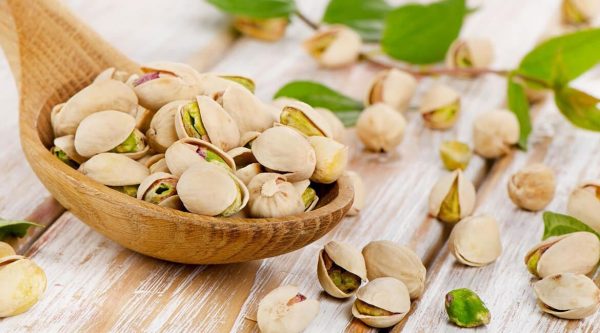The Benefits of Hazelnuts for Health
Good for cardiovascular health
Hazelnuts contain many good fats that help improve cardiovascular health. Additionally, hazelnuts also assist in reducing inflammation in the heart. Inflammation in the heart can lead to heart attacks and other cardiovascular diseases. The polyphenols in hazelnuts help reduce the risk of heart disease by promoting anti-inflammatory properties, improving the endothelial cells lining the heart and blood vessels.
The healthy fats in hazelnuts also help support blood pressure reduction. Additionally, they are very rich in antioxidants, carotenoids, polyphenols, vitamin E, and vitamin C. They effectively improve the elasticity of blood vessels.
Supports blood sugar reduction
The low carbohydrate content of hazelnuts helps release less sugar into the blood when our bodies convert carbohydrates into glucose. Therefore, they help reduce blood sugar levels and have a low glycemic index.
With a low glycemic index, hazelnuts release a low amount of sugar into the blood and decrease blood sugar levels. However, diabetes patients should only eat a maximum of 1 serving of hazelnuts (about 30g) per day is enough.

Supports weight loss
Thanks to their high fiber content and low fat content, hazelnuts are an ideal snack for you. The high protein content of hazelnuts promotes the energy-burning process and contributes to weight loss. These are one of the best nuts you should eat if you want to lose weight.
Improves sleep
This type of nut is rich in melatonin, a hormone released in the body to make us sleepy. This hormone regulates our sleep-wake cycle and the quality of our sleep. Therefore, eating hazelnuts in the evening before bedtime, 2-3 hours can improve sleep quality.
Reduces cholesterol levels
Thanks to their high antioxidant content, hazelnuts help protect cells from free radicals that cause diseases and aging. They are very beneficial for people with high cholesterol levels. Studies have shown that people who consumed 1-2 small servings of hazelnuts over 4 weeks saw a reduction in “bad” cholesterol.

Promotes a healthy digestive system
Hazelnuts contain minerals such as copper, manganese, vitamin B6, phosphorus, and thiamine that help supplement the microbiota (microbial environment in digestive health).
The microbiota strengthens the intestines, forms intestinal mucosal tissue, and protects against disease-causing agents. It also reduces inflammation in the intestines and promotes metabolism. Additionally, the high fiber content in hazelnuts helps regulate digestion by supplementing a large amount into the stool and supporting improved bowel movements.
Hazelnuts promote beneficial bacteria called probiotics that have super beneficial effects on intestinal health. Probiotics help increase the absorption of healthy nutrients such as protein, vitamins, and minerals from the diet. They also help eliminate harmful bacteria from the intestines. They also help lower the pH level in the colon, allowing stools to pass through easily.
Some side effects of eating too many hazelnuts
May lead to high blood pressure
You may also experience dizziness, blurred vision, confusion, and fainting. Additionally, consuming too many salt-roasted hazelnuts can increase the sodium level in the blood, increasing the risk of various cardiovascular diseases including high blood pressure.
May affect the digestive system
Due to their high fiber content, consuming a large quantity of hazelnuts can cause digestive disorders and lead to diarrhea, bloating, abdominal pain, irritable bowel syndrome. Hazelnuts also contain fructans that can cause gastrointestinal allergies.

Allergic reactions
People with nut allergies should avoid eating hazelnuts. Symptoms of hazelnut allergies include nausea, difficulty swallowing, oral itching, nasal congestion, hives, and nausea.
May contribute to kidney stones
Eating too many hazelnuts can increase the release of oxalate and methionine in the body. Oxalate can bind with calcium and potassium to create calcium and potassium oxalate. Additionally, methionine can convert to cysteine and lead to the formation of cystine kidney stones.
May cause weight gain
Eating hazelnuts helps with weight loss, but eating too much can lead to weight gain. The reason is that eating more hazelnuts than the recommended daily intake will increase calorie consumption, leading to weight gain.



































